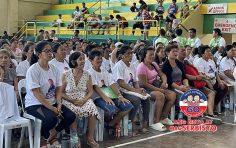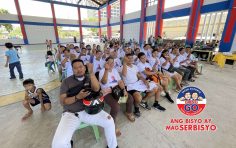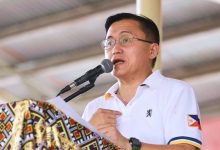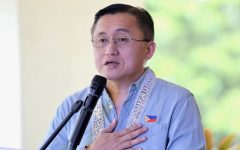Few months following a tragic incident in a Cebu City locality, the relief efforts led by Senator Christopher “Bong” Go still resonate deeply within the community. On January 18, a severe fire in Barangay Quiot Pardo disrupted the lives of residents, affecting house owners, renters, sharers, and a lodger. There were no fatalities, and the community found a haven at Quiot Elementary School.
On January 21, Go’s team swiftly provided immediate aid to address essential needs, setting a foundation for recovery. The Senator’s unique approach to disaster relief, coupled with his enduring commitment to holistic recovery, was felt by the affected residents.
Reflecting on the events, Go, who chairs the Senate Committee on Health, recalls, “Agad-agad tayong rumesponde upang matiyak na walang magugutom at walang mapapabayaan habang sila’y nasa proseso ng pagbangon.”
Beyond this immediate relief, Go’s response highlighted an often-ignored aspect of disaster recovery: the importance of dental health.
During the relief activity shortly after the disaster, the plea for dental care was unexpectedly brought to light by Alena Cereño, a 57-year-old long-term resident of Quiot, who lost her dentures in the chaos of the fire which affected 35 families. Several others in her community supported her brave request during Go’s visit, spotlighting a common but underreported need.
Go quickly mobilized resources to provide necessary dental care, ensuring that those like Alena did not just receive temporary aid but were supported through their journey to full recovery. This included repeated dental clinic visits for check-ups, tooth extractions, and denture fittings, complemented by transportation and meals for each visit shouldered by Go himself.
Go reiterated the importance of a recovery that leaves no one behind, stating, “Walang dapat maiwan sa muling pagbangon. Kailangan kasama sa ating pagtulong ang pangangalaga sa lahat ng aspeto ng kalusugan, kabilang na ang kalusugan ng ngipin.”
Months later, the impact of this initiative continues to be a testament to Go’s vision for a recovery that caters to disaster victims’ physical and emotional well-being.
Dental health was brought to the forefront during a recent health committee hearing initiated by Go on May 20, where the stark reality of dental health challenges in the country was discussed. It was revealed that 7 out of 10 Filipinos suffer from dental problems, yet access to necessary dental care remains a significant hurdle, especially for the impoverished.
The hearing spurred Go to advocate for broader healthcare coverage to include dental services within the government’s Medical Assistance for Indigent Patients (MAIP) program.
Recounting the specific incident in Cebu City, Go shared, “Napasubo ako. Sabi ko, bigyan ko kayo ng pustiso. Pero bawal po,” illustrating the bureaucratic challenges faced when certain dental services such as dentures are excluded from government healthcare assistance.
He appealed to DOH that amendments may be made to existing regulations, suggesting that affordable dentures should be made accessible through medical assistance, considering sufficient budget allocation made for the medical assistance program for indigent patients.
“Baka ma-consider n’yo naman po na… Medical Assistance for Indigent Patients naman po ‘yan. Indigent ‘yan, pero hindi daw pwede (para sa dentures). Hindi siya daw part ng IRR… pwede naman siguro (i-amend para mabigyan kahit) murang postiso,” he urged.
Health Secretary Teodoro Herbosa detailed ongoing efforts to revitalize dental health services, highlighting initiatives such as providing dental buses to various local government units. He also emphasized that efforts to strengthen dental services began during his tenure as Undersecretary, including reinstating the oral health program as part of these renewed efforts.
To bring dental care closer to communities, Go also highlighted efforts to establish more Super Health Centers in various communities nationwide to complement existing healthcare facilities, helping to relieve the strain on overcrowded hospitals and clinics, particularly in rural areas.
“Marami sa nabisita ko na Super Health Centers ay may dental services na din. Isa itong paraan para ilapit ang serbisyo ng gobyerno sa mga tao sa kanilang komunidad lalo na pagdating sa kalusugan,” said Go who is known as Mr. Malasakit for his compassionate service for the underprivileged.
The Super Health Center is set to provide basic healthcare services, including database management, out-patient, birthing, dental, isolation, diagnostic (laboratory: x-ray and ultrasound), pharmacy, and ambulatory surgical unit. Other available services are eye, ear, nose, and throat (EENT) service, oncology centers, physical therapy and rehabilitation centers, and telemedicine.
Through the collective efforts of Go, fellow lawmakers, LGUs and the DOH, sufficient funds had been allocated for more than 700 Super Health Centers nationwide.









